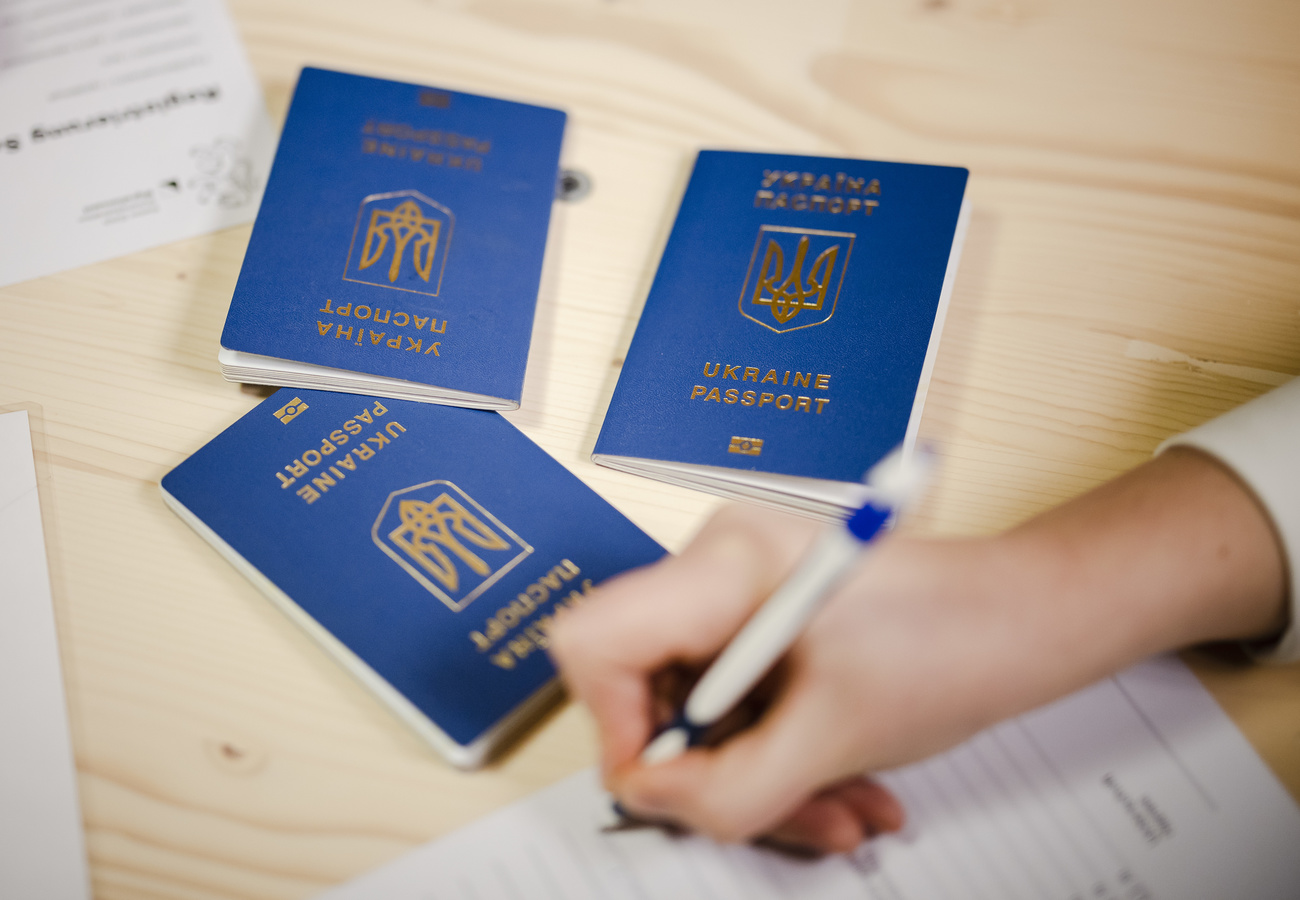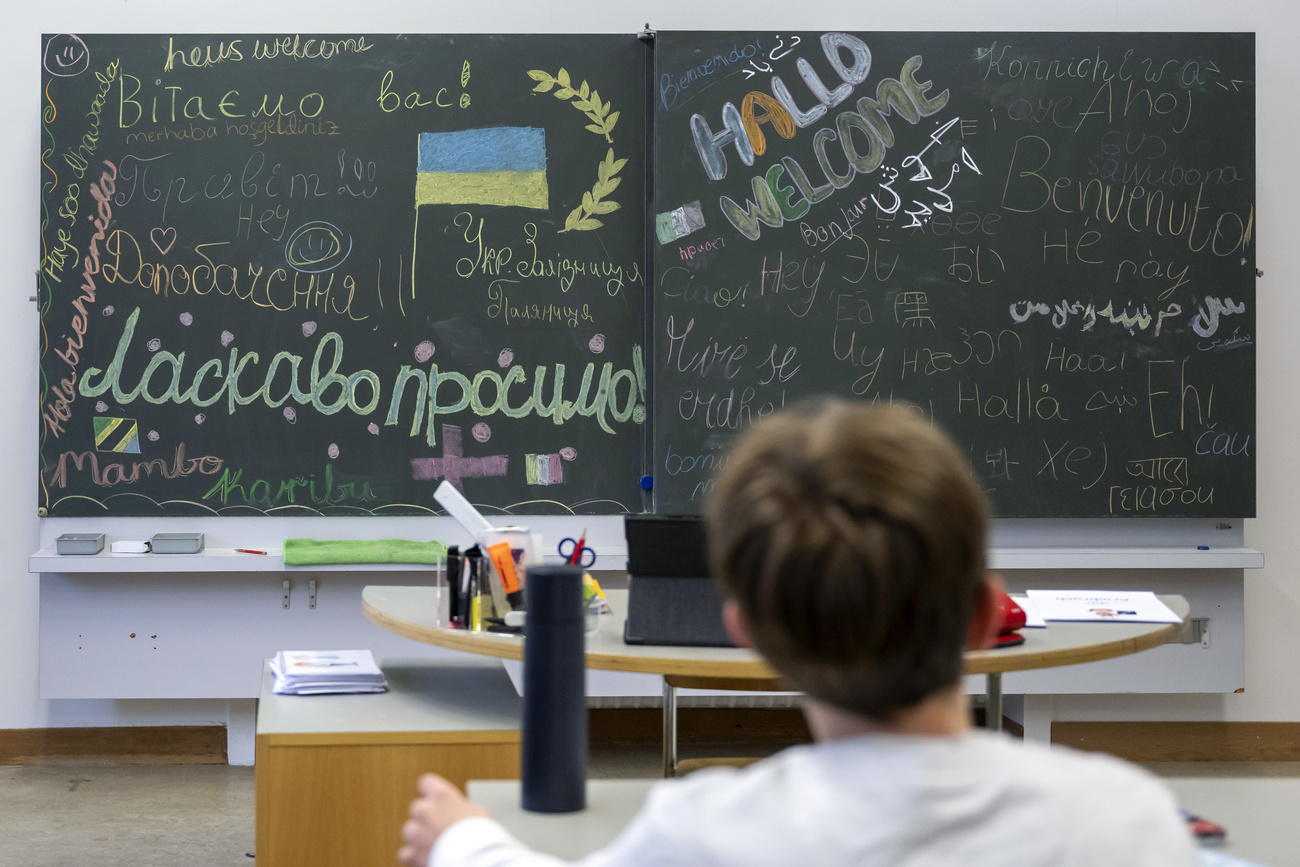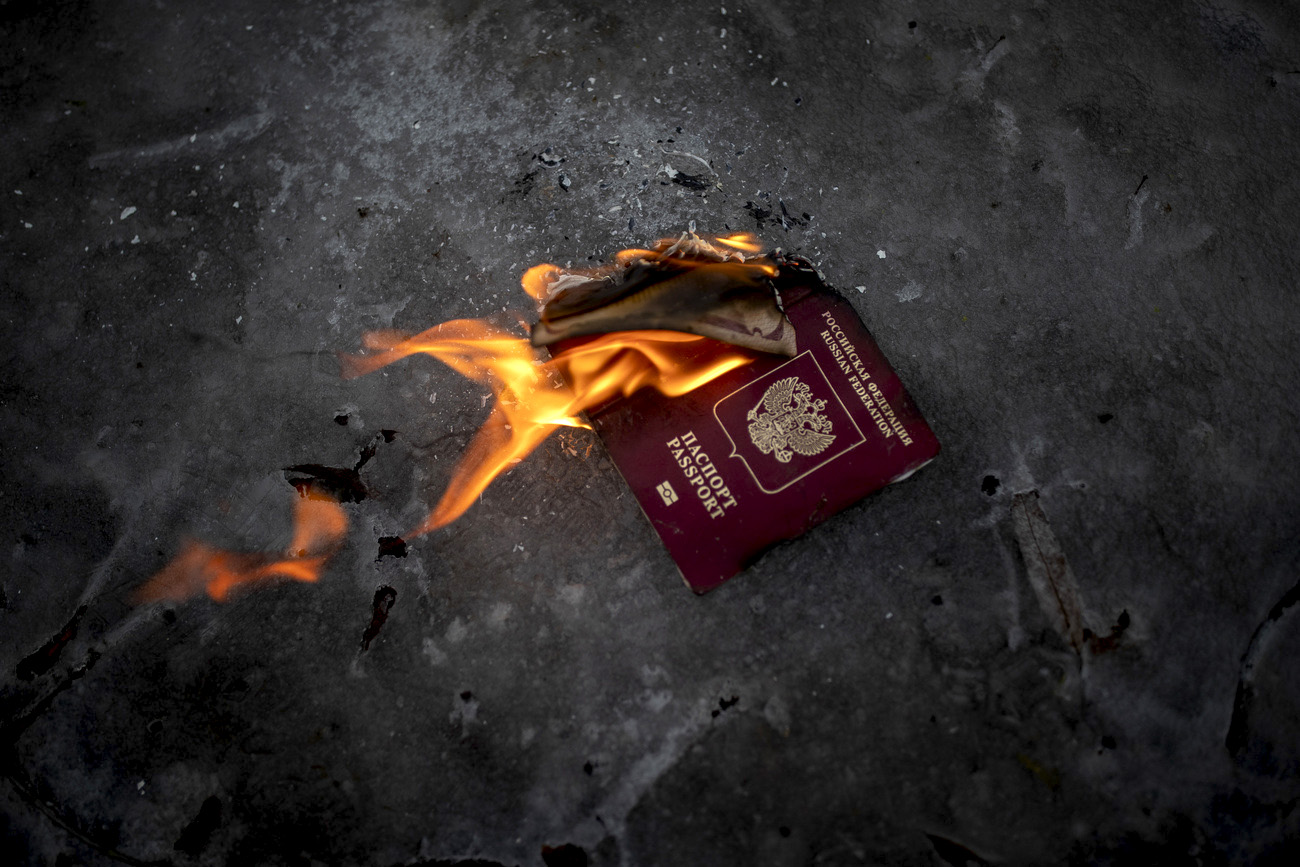The war, refugees and Switzerland
Dear reader,
Our SWI swissinfo.ch newsletter brings you Swiss perspectives on the war against Ukraine. The arrival of displaced people from Ukraine means that the effects of the war are also being felt in Switzerland.
Language is one indication that Switzerland is impacted by the war. In Swiss trains – where people usually barely talk to each other – it is now not uncommon to hear Ukrainian. It’s a situation that looks set to stay.
In this newsletter, we focus on the people fleeing Russia’s war on Ukraine, now estimated at more than 13 million. Of these, 7.7 million have moved inside Ukraine, but 5.5 million have fled abroad. Around 45,000 refugees have arrived in Switzerland, including Viktoriia and Polina, who came carrying two bags and two backpacks. Our freelancer Gaby Ochsenbein took them in.

More
Viktoriia and Polina are now living with me
Viktoriia and Polina receive money and intensive language lessons. They can move freely and use public transport for free. They have been granted the special protection status S. This has caused some dissent among other ethnic groups. “The decision by the Swiss government to grant Ukrainian refugees a special protection status has prompted mixed feelings among asylum-seekers from Arab, African and Asian countries, who have fled bloody conflicts themselves,” writes Kamel Dhif from our Arabic department. Dhif quotes a reader who finds there is “not openness but racial discrimination” behind Switzerland’s welcoming culture. Read more about this here:

More
Reader reaction to Ukraine war: ‘I see no difference – they’re all fleeing death in war’
It is a historical fact that Switzerland has opened its heart and its borders very selectively over the decades. Our historian David Eugster has been looking back at Switzerland’s refugee policy. His research findings are clear: Switzerland has often been generous in welcoming those who were expelled by regimes considered hostile or evil, such as Tibetans fleeing China or Hungarians escaping the Soviet Union. But generosity has been selective. Jews fleeing the Nazis – or Kurds fleeing Turkey were not welcomed with the same openess. Read our analysis of Switzerland’s selective asylum policy below:

More
How Switzerland’s views on refugees have evolved
One way of comparing the generosity of individual nations would be to calculate the number of refugees a country has accepted in relation to its population size, as our data journalist Jonas Glatthard has done. He found that, surprisingly, Sweden and Hungary took in particularly large numbers of refugees from Syria in 2015. But in 2022, it is Ukraine’s neighbouring countries who are leading the way. Switzerland was and continues to languish somewhat in the middle. You can find the whole analysis here:

More
How welcoming is Switzerland for refugees?
Back to everyday life in Switzerland, which is also home to some 16,000 Russians. Have they experienced any anti-Russian sentiments? Reporter Eva Hirschi found individual cases, but hardly any evidence of systematic discrimination. Geneva has a particularly large number of Russian-speaking pupils. According to the Geneva’s Department of Education, these students could even help Ukrainian refugees to integrate more quickly.

More
The Russian diaspora in Switzerland walk a fine line
SWI swissinfo.ch also played an important role for many refugees. We analysed how our Russian-language site was used and where the website hits came from. “The data rarely speak such a clear language,” says David Schwelien, who is responsible for data analysis at SWI. The website hits coincided with refugee movements from Ukraine. And people mainly read articles about how Switzerland is helping Ukrainians.

In compliance with the JTI standards
More: SWI swissinfo.ch certified by the Journalism Trust Initiative









You can find an overview of ongoing debates with our journalists here . Please join us!
If you want to start a conversation about a topic raised in this article or want to report factual errors, email us at english@swissinfo.ch.